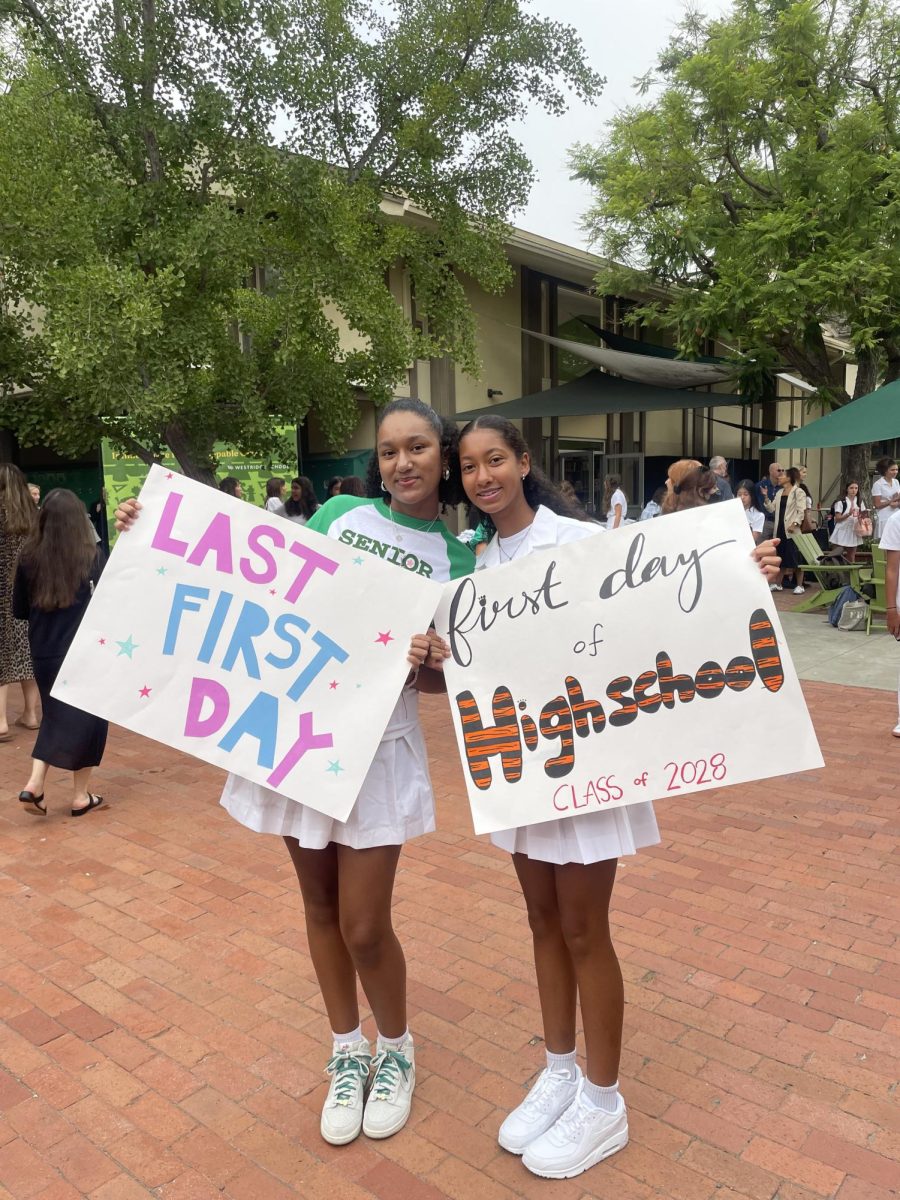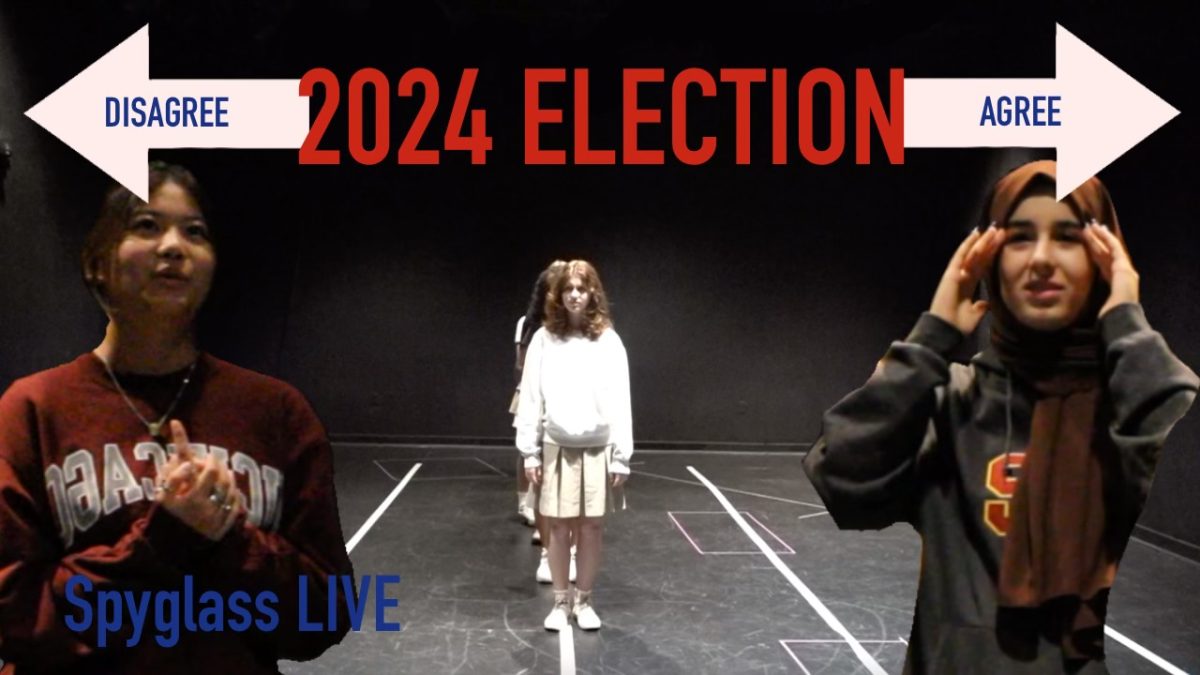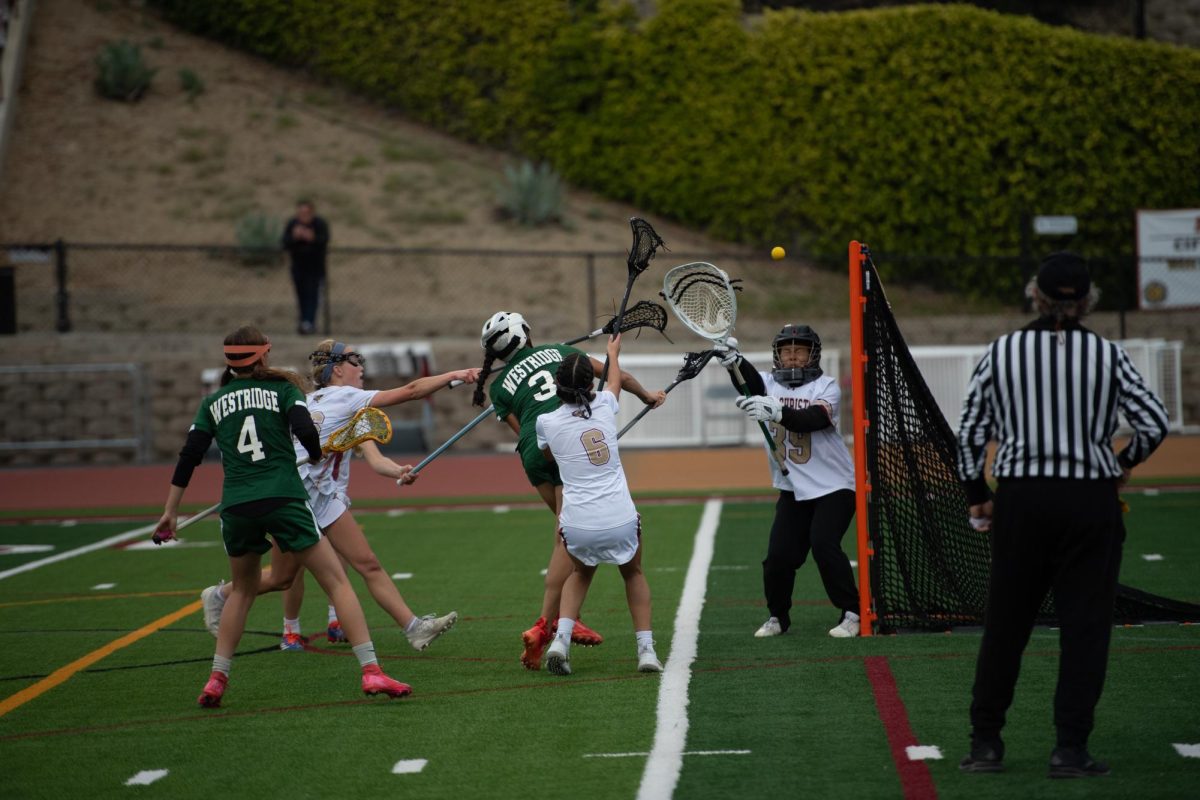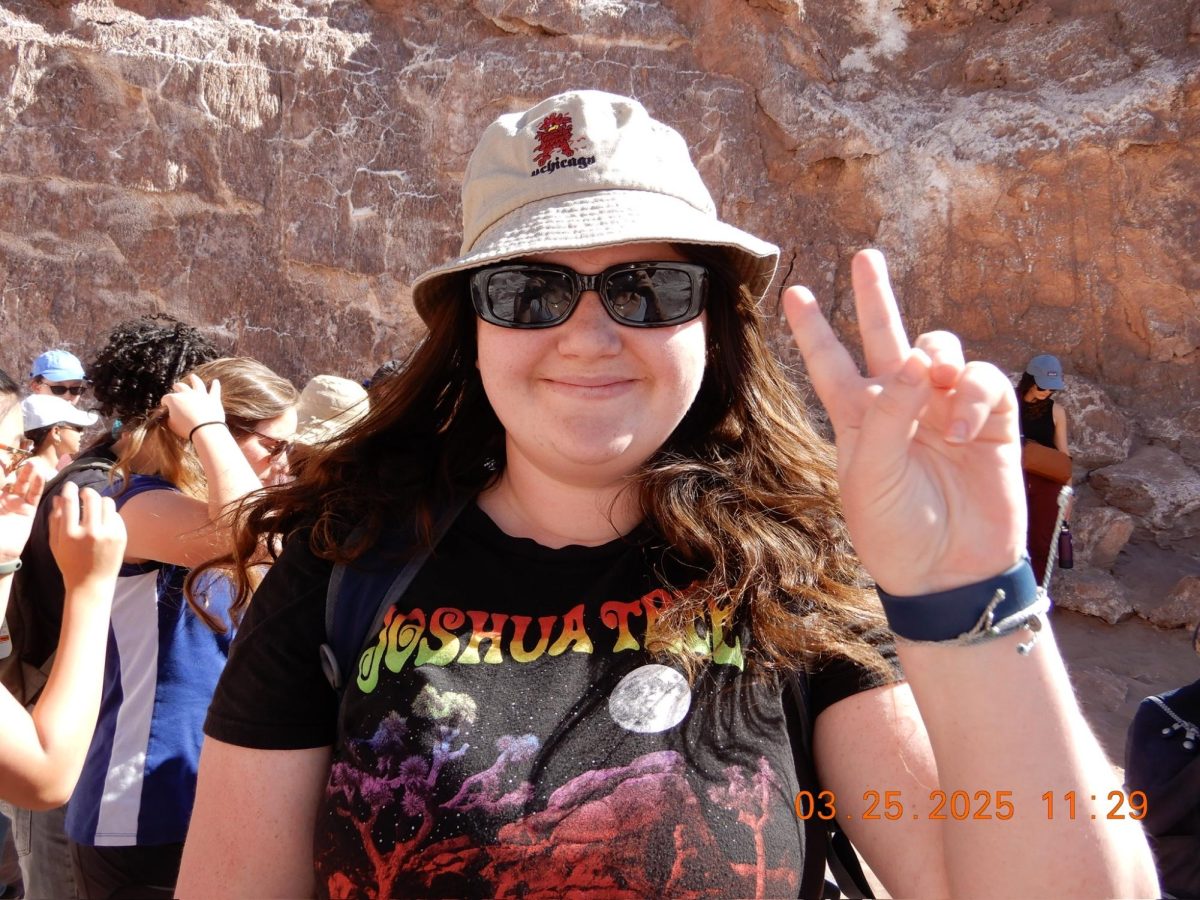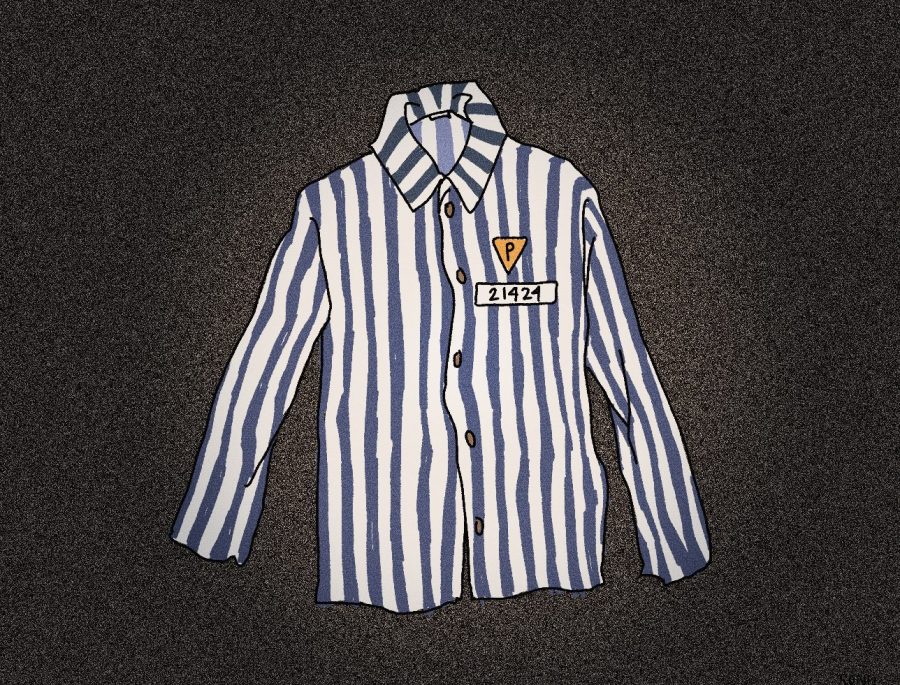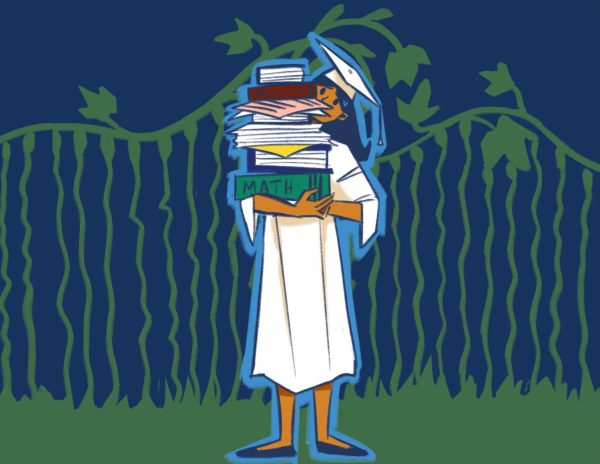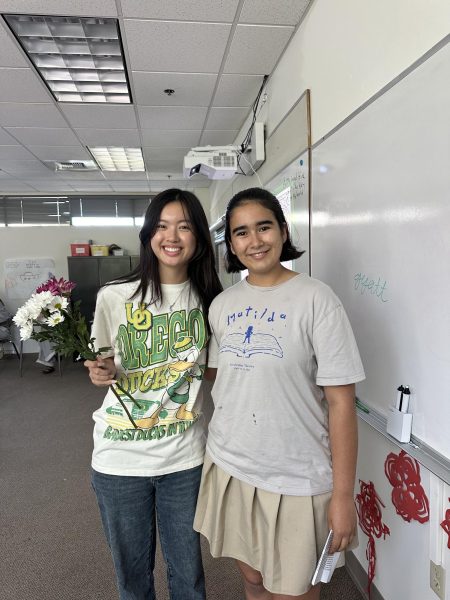Holocaust Education is Important Now, More than Ever
At Westridge, Holocaust education is primarily split up between two history classes: 7th grade history and 10th grade history. Is Westridge’s Holocaust education sufficient?
Spring Break does not normally entail a visit to the Museum of Tolerance, but it did for mine. This past March, alongside 20 other Jewish teens, I visited the museum for the first time to reflect on the tragedy of the Holocaust and remember the estimated 6 million Jewish lives lost. The visit was filled with tears, a sense of pride for my people, and parts of history I had never known.
As the descendant of two Holocaust survivors, preserving survivors’ memories and sharing their stories is important to me. With every day, the Holocaust and those who survived it inch away from us. Keeping its memory and the lessons learned alive is a continual act of defiance, especially when Holocaust denial threatens to erase it from history. It has now been over 75 years since the genocide occurred. As much as the event is still very much recent in the scale of global history, the remaining survivors are dying; and with each one, so is their own story.
My somber experience at the museum is not unique; it’s one that many Jewish people experience. For many of us, being Jewish can feel lonely. For me, every time I see reports of antisemitic graffiti, every time I hear about a politician using antisemitic rhetoric, or any time I read comments joking about the Holocaust, an intense sense of frustration rises in me. So often, it feels like things like those are only noticed by Jews. So often, it feels like there is no one else there to support Jewish people and fight against antisemitism. As much as I would like to combat antisemitism, without the help or attention from allies, there is only so much I can do. As Jewish hatred is on the rise, our community often feels isolated, like there’s no one to stand up for us; which is why Holocaust education is now more important than ever.
Ms. Gigi Bizar, 7th Grade History Teacher, Jewish Affinity Advisor, and Holocaust Educator, feels passionately dedicated to fighting anti-semitism. She said, “I don’t think there’s anything more important to teach young people than to be aware of the signs. Bystanding, bullying, propaganda, and those kinds of things. The Holocaust is the largest example of death and destruction in the modern world and [those are the] ways it was perpetrated through.”
Ivy A. ‘24, a descendant of Holocaust survivors, believes that Holocaust education is critical to understanding the impact of antisemitism and its historic and very current danger. “Holocaust education is important because of the prevalence of the idea that ‘antisemitism isn’t a problem anymore,’ while neo-Nazi sentiment in us continues to grow…it is so important that the raw, brutal memory of the Holocaust is kept alive so that it never happens again. The reality is that we are not so far from the Holocaust — in the past or in the present,” she said.
While Ivy thinks Westridge is doing a “pretty good job overall” with its Holocaust education, she wants the school to focus on combating modern-day antisemitism and host more events like the assembly in March.
At Westridge, Holocaust education occurs at two formal points in the required history curriculum. In 7th grade Ms. Bizar spends a full semester on World War II, the Nazi party’s rise to power, and the atrocities of the Holocaust. In 10th grade’s Crisis and Courage class, the Holocaust is included as part of the study of the Armenian Genocide, and the Rwandan Genocide.
Ms. Bizar’s curriculum focuses on the implications of bystanding and propaganda, using the Holocaust as the primary example. She said, “I believe Holocaust education is teaching about the Jewish history in Europe before the Holocaust, and specifically teaching what antisemitism is and a history of antisemitism.”
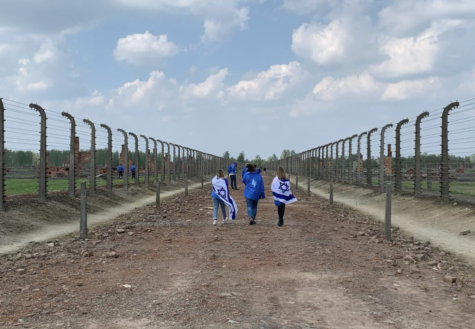
For seventh graders at Westridge, Ms. Bizar’s teaching makes an impact. Before coming to Westridge, Piper H.-M. ‘28 had learned little about the Holocaust. She said, “Westridge’s Holocaust education really impacted me. I learned a lot about the Holocaust that I never knew [before].”
Piper went on to further say that Holocaust education at Westridge is sufficient. “You learn a lot for a long period of time. You go to the Holocaust museum to learn more. You get very into detail about the Holocaust, and how Ms. Bizar taught it was amazing,” she said. Like many seventh-grade students, she praises Ms. Bizar’s teaching and focus. She said, “The education I learned from the Holocaust was very deep, and the teacher teaching it was even better. You learn about all the different sides, not just one side. It’s interesting, and I still know a lot just from [a little time] of learning about it!”
Piper’s experience shows the impact of Holocaust education. If you take students like her, who knew little about the Holocaust previously, you can transform their outlook on the Holocaust and antisemitism as a whole.
Azzy H. ‘28 felt they gained a whole new perspective after learning about the Holocaust from Ms. Bizar. She said, “I have had a great time learning about the Holocaust in interactive ways. It helped me become more sympathetic to people of other walks of life. I think Ms. Bizar really helped inform us in a way that didn’t water down the situations but also didn’t traumatize us.”
While Holocaust education centers itself around the Jewish genocide of World War II, it begins further conversations about Jewish hate. While conversations may begin with the Holocaust, they do not have to end with the Holocaust.
As Piper noted, Ms. Bizar teaches many perspectives on the Holocaust. Ms. Bizar said, “A Holocaust educator also has a great duty to teach about anti-racism in general, in conjunction with the Holocaust.” She also highlights all marginalized groups persecuted in World War II like Romani people and LGBTQ+ people.
Ms. Bizar does her best to provide Westridge students with a strong understanding of the Holocaust. Still, for students who enter after seventh grade, their only other opportunity to learn about the Holocaust is a briefer 10th-grade unit. As much as Ms. Bizar wishes Westridge could incorporate more Holocaust education in its curriculum. She said, “To me [the Holocaust] is the most critical event to cover so no, I don’t think there’s enough Holocaust or genocide education at Westridge.”
Even though Ms. Bizar wishes Westridge could teach more about the Holocaust, she emphasized her appreciation for the genocide education in Upper School led by Upper School History teacher, Ms. Sandy de Grijs. She said, “I know Ms. de Grijs does a great job of incorporating genocide in [a quarter of the 10th-grade history curriculum]. So I’m very, very grateful for that.”
Ms. de Grijs, Westridge Upper School History Department’s lead genocide educator, explained how Holocaust education has paved the way for the studies of other genocides. For this reason, much of her Holocaust education is comparative. Originally, she started by looking at the Holocaust and Armenian Genocide side-by-side, but she said it developed from there, and the genocide unit was formed.
With so many genocides to cover, spending significant time focusing on just the Holocaust can be difficult.
While every teacher must make choices about what to cover in the curriculum, there is in reality only so much one can do. Westridge curriculum meets the state requirement, and may even exceed it according to some, but some students want more.
Lily J.’25, has a Jewish grandmother and came to Westridge in 7th grade. This year, in her 10th grade class, she felt the coverage of the Holocaust was insufficient. She said, “I feel like it was very much glossed over. I found that we didn’t talk about it as much as we should have. It was just kind of thrown in as an example of genocide, but it wasn’t properly explained.”
Micah M.-L.’25 is active in her Jewish community and came to Westridge in 8th grade. Despite missing Ms. Bizar’s class, she finds the curriculum impressive. She believes Westridge should bring in first-hand accounts of the Holocaust in Upper School. “I think it would be really beneficial to have Holocaust survivors come and speak at Westridge for town halls or other student-body events,” said Micah.
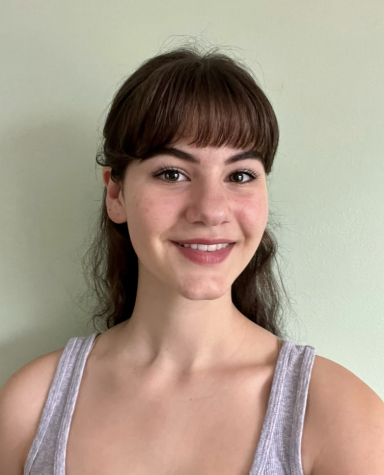
Although Westridge, as an independent institution, is not bound to state educational standards, it is important to note that California has a state law requiring schools to teach Holocaust history. The law, enacted in 1985, says, “… with particular attention to the study of the inhumanity of genocide, slavery, and the Holocaust.”
California is not the only state to require schools to teach the Holocaust. Before 2017, only five states had laws specifically requiring the Holocaust to be taught, but as of December 2022, 13 more states have enacted laws requiring the education. Still, 33 states do not have any official laws specifically outlining a requirement for Holocaust education.
Without laws enforcing the teaching of the Holocaust, many schools will simply skip or gloss over the topic, making the Holocaust all but a distant memory. If states do not set precedents now, while the Holocaust is still a recent historical event, there will be a slim chance that the Holocaust will be taught in the future.
While Holocaust education may vary from state to state, it has come under increasing controversy. In 2021, a school district in Texas was told they must teach the opposing view (the Nazi party viewpoint) of the Holocaust because a recent state law passed banning teachers from discussing controversial historical, political, and social issues. According to the law, if such discussions do arise, teachers are expected to “explore such issues from diverse and contending perspectives without giving deference to any one perspective.”
Additionally, just weeks ago in Florida, two Holocaust-focused textbooks were rejected in a broad review of K-12 curriculum. According to the Jewish Telegraphic Agency, “Under Republican Gov. Ron DeSantis, the state has made an effort to clamp down on what he calls ‘woke indoctrination,’ mostly regarding race and gender. The textbooks’ rejection is the latest example of how that drive is affecting Jewish topics as well.” Despite this, the DeSantis administration stated that it remains committed to Holocaust education, according to Florida’s Education Department’s Director of Communications.
Even though the DeSantis administration may claim to be committed to Holocaust education, they are still restricting Holocaust learning resources. In doing so, DeSantis and his team distort the narrative of the Holocaust, potentially removing the authenticity of current Holocaust education, and leaving behind a biased telling of the Holocaust for future generations.
With more restrictions regarding Holocaust education, it’s inevitable that fewer citizens will understand and recognize the danger of antisemitism. According to a Pew Research Center study in 2020, less than half of Americans can answer a multiple-choice question asking how Hitler rose to power (43%) and the number of Jews murdered in the Holocaust (45%). But, in comparison to a 1997 Pew Research Study on Holocaust Knowledge, in 2020, 10% more Americans know how many Jews were killed in the genocide, which shows a positive trend in Holocaust education. Those who answered more Holocaust-related questions correctly were found to have warmer feelings towards Jewish people, according to the Pew Research Center.
Holocaust denial is also on the rise. Between June and July 2021, almost 4,000 pieces of content denying the Holocaust were removed from five social media platforms. According to a 2022 Jerusalem Post article, the Israeli Ambassador to the United Nations said, “in an era in which fiction is now becoming fact, and the Holocaust is becoming a distant memory. Holocaust denial has spread like cancer, it has spread on our watch.”
As the Pew Research Center’s statistics indicate, the more people know about the Holocaust, the less likely they are to harbor negative feelings toward Jews. In a time of increased antisemitism and Holocaust denial, the best thing educators can do to stop these negative trends is by continuing to educate on the Holocaust. After seeing photographic evidence of the ways Jews’ bodies were piled in concentration camps and of the harsh labor and conditions that were endured in concentration camps, it is hard to deny the Holocaust. But it also becomes hard to continue to hate.
While Westridge’s Holocaust education is not perfect, it has played an important role in educating young people about genocide and the insidious factors which can lead to it. Westridge’s program hits the mark for me because it teaches students to be compassionate, to identify hate, and most of all, to stand up against injustice.
Correction (6:45 pm June 4):
The previous version of this article excluded this segment: “Even though Ms. Bizar wishes Westridge could teach more about the Holocaust, she emphasized her appreciation for the genocide education in Upper School led by Upper School History teacher, Ms. Sandy de Grijs. She said, ‘I know Ms. de Grijs does a great job of incorporating genocide in [a quarter of the 10th-grade history curriculum]. So I’m very, very grateful for that.’” It now includes this paragraph.
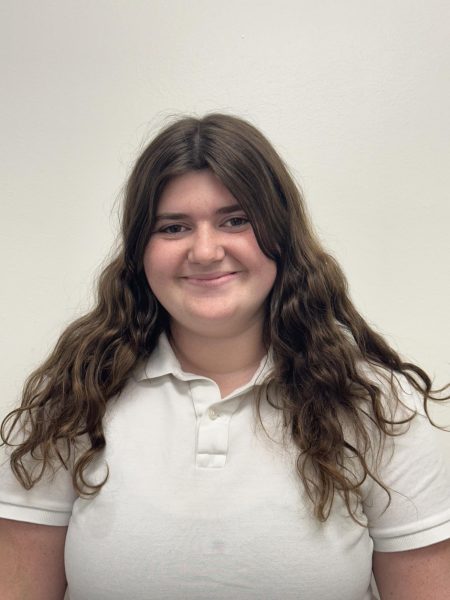
Ella is a senior and the Editor-in-Chief of Spyglass, now in her sixth year on staff; in the three years prior, Ella has served as Social Media Manager....




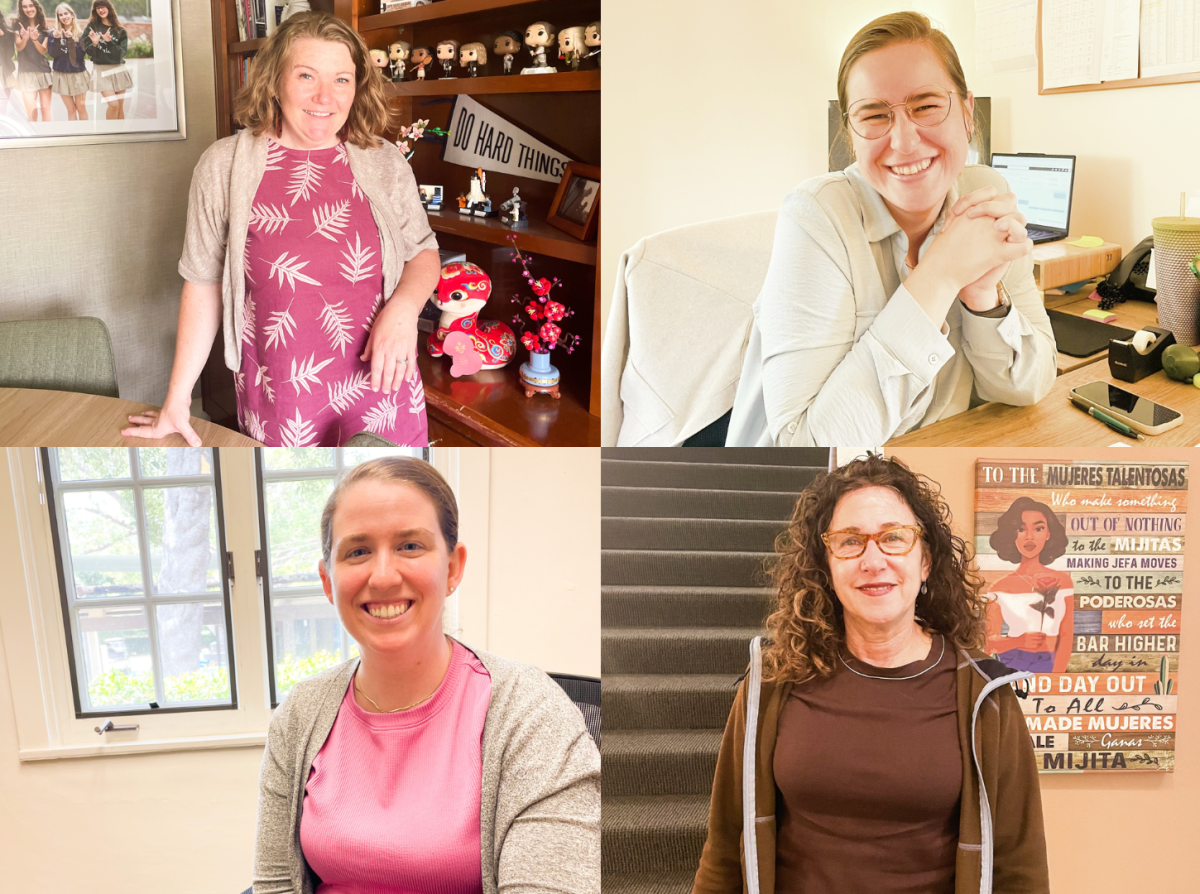
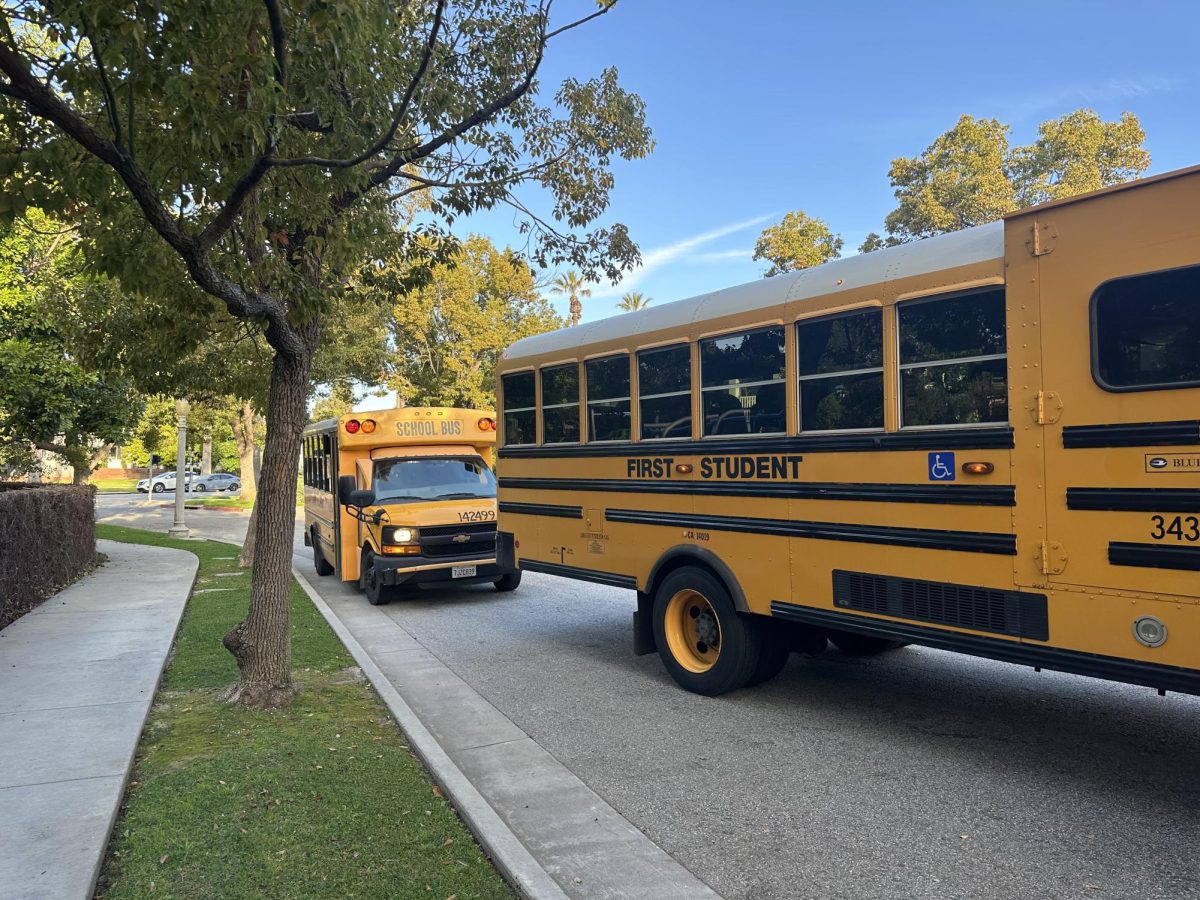


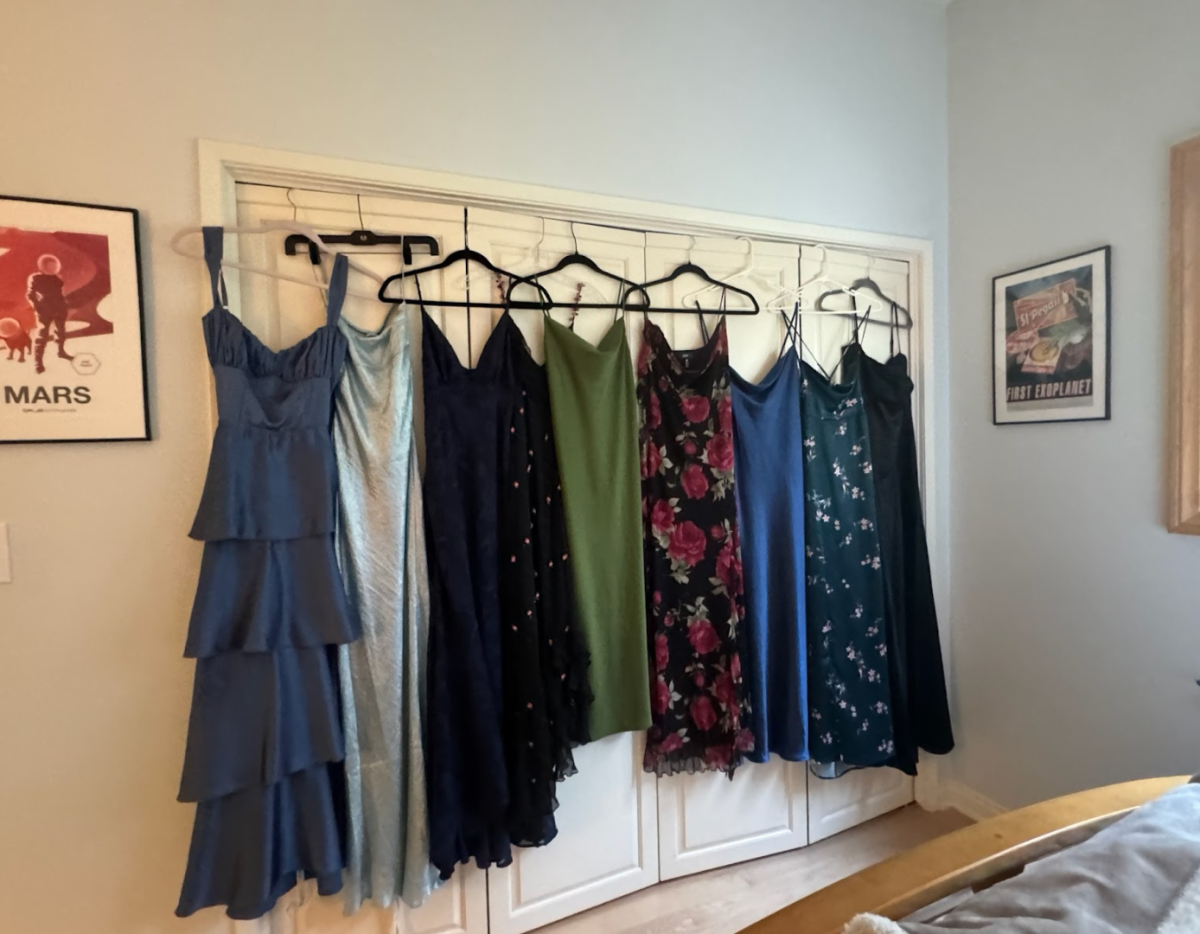








![Dr. Zanita Kelly, Director of Lower and Middle School, pictured above, and the rest of Westridge Administration were instrumental to providing Westridge faculty and staff the support they needed after the Eaton fire. "[Teachers] are part of the community," said Dr. Kelly. "Just like our families and students."](https://westridgespyglass.org/wp-content/uploads/2025/03/dr.-kellyyy-1-e1748143600809.png)








